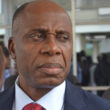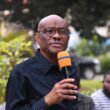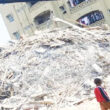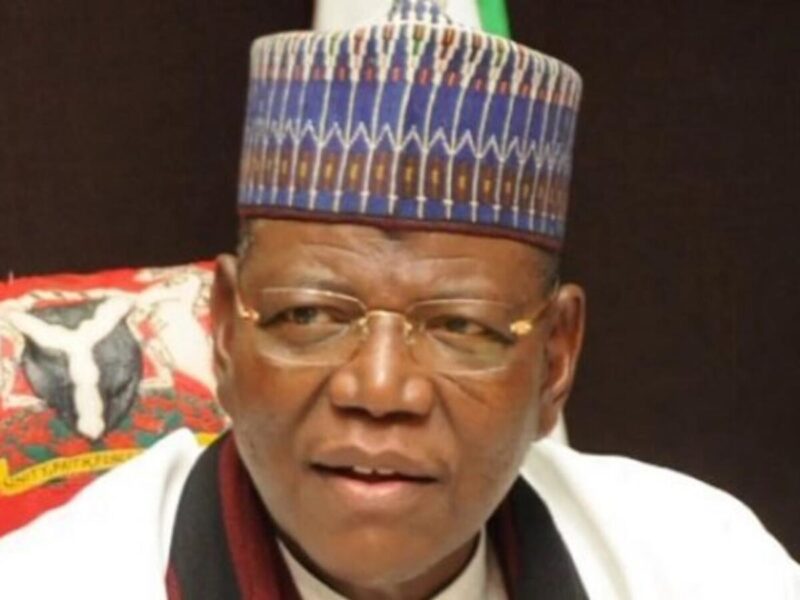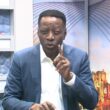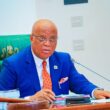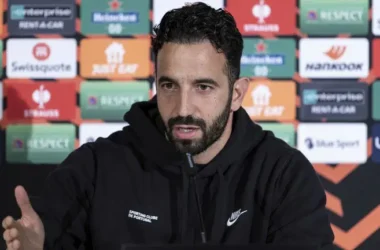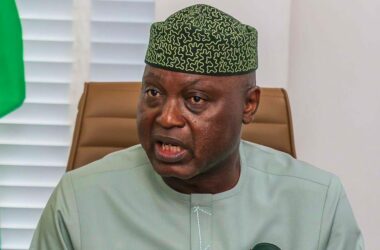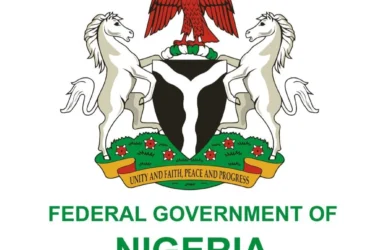Former Jigawa State Governor Sule Lamido has recounted a revealing moment from Nigeria’s turbulent political history, shedding light on a serious conversation that underscored the deep mistrust among key political figures during the military era.
In his newly released memoir, “Being True To Myself,” Lamido, a founding member of the Peoples Democratic Party (PDP), shared a private encounter with the late Chief Bola Ige that took place in the heat of the nation’s struggle to return to democratic governance.
The events he described took place during a private meeting of nine political leaders at No. 9 Raymond Njoku Street, Ikoyi, Lagos.
These nine individuals—later known as the G9—included well-known political figures such as ex-Vice President Alex Ekwueme, Bola Ige, Prof. Jerry Gana, Adamu Ciroma, and Lamido himself. The group had assembled after the late General Sani Abacha refused to register their political parties.
“Adamu Ciroma is my friend. I know both of them very well.
“I know a lot of people from the North. Your collective position on many issues within the last few years has revealed that the North responds as one entity.
“The North has an agenda, and therefore, Rimi, Lar, Adamu, and all the other members here present, I don’t trust you.
“You are trying to use us to create a kind of moral force, a national momentum, but you have a private agenda behind it.
“Otherwise, if you want me to believe you, go back to the North and create a fresh group to challenge Abacha’s military government.
Only if you do that will I believe you.’”
Lamido went on to say, “In my response to Bola Ige’s challenge, I simply said, ‘We agree; you are right.’
“The fact of the matter was that, whether we accepted it or not, Abacha was regarded by other sections of the country to symbolically represent the people of the North.
“For them, he was simply a Northerner, and whoever was familiar with the manipulations of the government would be forgiven for imagining that we were all a party to it.
“This would support the argument that if we were genuinely against the military government, we should go back home and establish our own Northern pressure group to challenge it.
“In the end, we returned to the North and convened a meeting with that single motive.”
Speaking further, the author explained that on returning to the North, the group invited and met with people from different backgrounds, like Dr Usman Bugaje, a university lecturer who was an associate of General Shehu Yar’Adua, and the radical retired Colonel Dangiwa Umar.
Ex-Kaduna State civilian Governor Balarabe Musa was also invited.
He explained that Balarabe Musa and Chief Sunday Awoniyi turned down the invitation to join the new movement.
Lamido further stated, “I remember many other activists today who were popular advocates for democracy and stood for particular principles but had refused to be part of us because they were afraid of Abacha.
“Thus, in the end, only eighteen of us turned up at that historic meeting held at Adamu Ciroma’s house.
“A written communication to General Sani Abacha was drafted and adopted to explain our concerns and objections to his political transition programme, and we all signed it.”
He confessed that the birth of what later became G18 was in response to Chief Ige’s challenge.
The ex-Jigawa State Governor wrote, “Back to the formation of the G18, I remember that it was almost entirely composed of ‘Yan Arewa (Northerners)’.
“Having written and signed the petition to General Sani Abacha, the Head of the Military Government, to explain our position concerning his political transition programme, we immediately sent it off.
“It was a response to the challenge by Chief Bola Ige and to demonstrate that the G9 was now a national movement.
“We, therefore, wanted to come back from Lagos to start our revolt from the North; that was how we convened the G18 meeting for Northern members only.
“Subsequently, the G34 was born, comprising people from all parts of Nigeria, setting in motion the political opposition to Abacha’s self-succession agenda.” End.


